When I was 15 years old, I traveled to Central America with a group of teenagers. People have all sorts of big feelings about youth mission trips, some incredibly valid, some blown out of proportion, but that summer changed the trajectory of my life.
I grew up poor, but the poverty I witnessed was beyond anything my teenage mind could have ever conceived. I remember one evening, a six-year-old boy we had gotten to know as an exuberant ball of energy came into the kids’ programming with a pale stricken face. His hand was wrapped in an old dirty cloth, soaked with blood. That afternoon he had been helping his father clear land and sliced the palm of his hand on the machete he was using. The wound was deep. No one on our team had medical experience, and our supplies were limited to a basic first-aid kit. Our team leader did what he could to clean and wrap it, but there was nothing else we could do. When I asked if he would be taken to the doctor I was told that there wasn’t one for hours and the boy’s family wouldn’t likely be able to afford the trip or the medical bill. Without insurance, he wouldn’t be seen.
That night I recognized what a privileged life I lived. I did nothing to earn it, simply by being born in the right country to the right family, I had won a geographical lottery. My family didn’t have health insurance. We clung to the bottom of the middle class where my dad made too much to qualify for state-funded health care but made nowhere near enough to afford coverage for a family of seven. That said, between my younger siblings and myself, emergency room visits occurred every couple of years. We were never turned away.
After that summer, I knew I wanted to spend my life serving others. After graduating high school, I received a full-ride scholarship to the local community college where I took pre-requisites for both nursing and psychology as I considered the route I wanted to take. I graduated with my AA in the spring of 2008. Jon cheered so loud from the stadium seats that I could hear him as I walked across the stage to get my diploma. He proposed to me that summer, and I decided to take “a semester off” to work and save up for our wedding. I planned to pick up my education the following year. Unfortunately, the economic crisis and the heavy weight of Jon’s student loans meant I could not afford not to work two jobs. My educational goals would have to wait until Jon could get a job with his degree.
It wasn’t until our daughter was born in 2015 that I was able to stop working and start taking psychology classes online. I started the spring semester of 2016. Jon passed away the week before my final exams. I continued to take classes over the summer to give me something to do but did not continue into the fall because of our son’s approaching due date.`
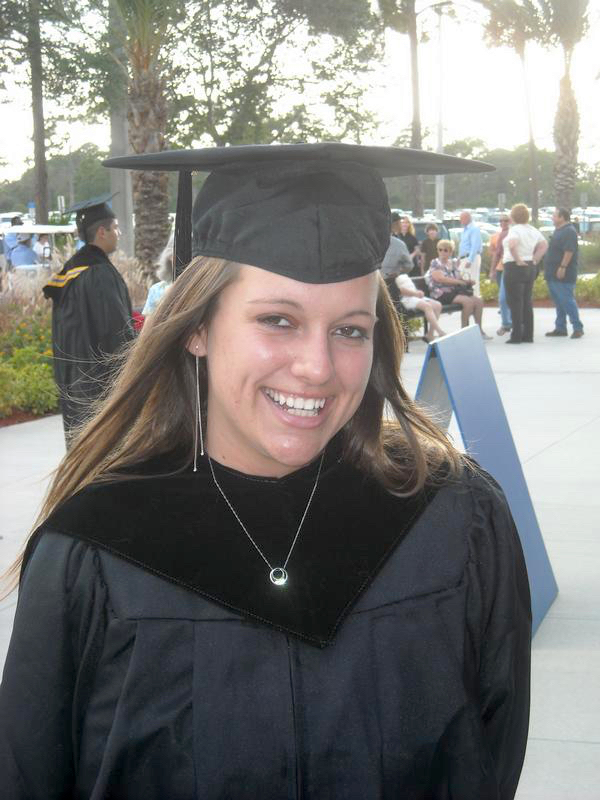
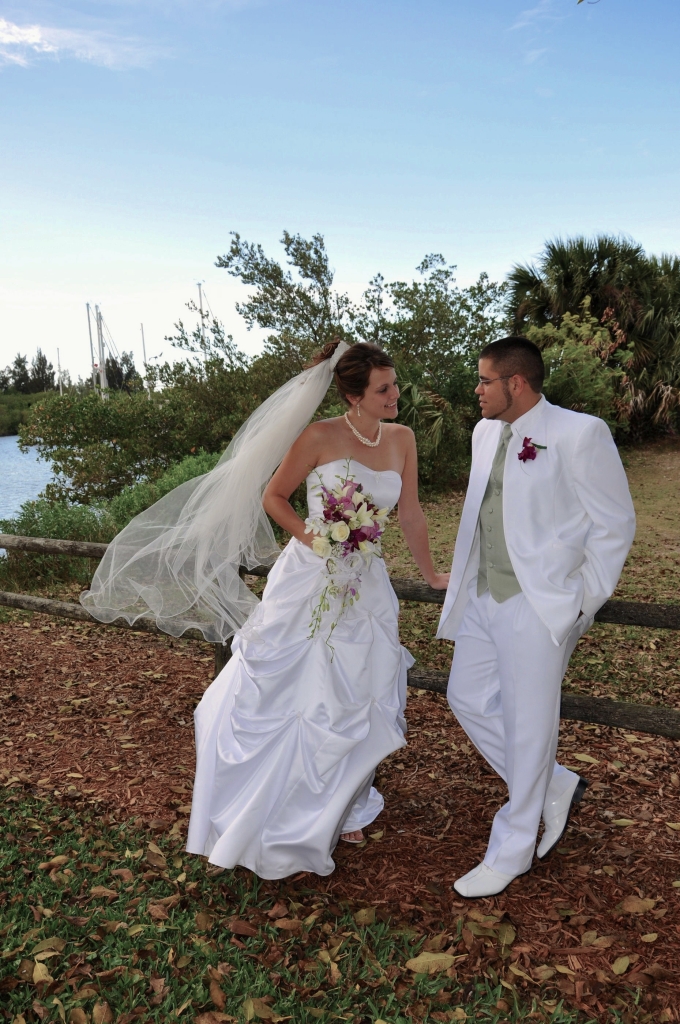
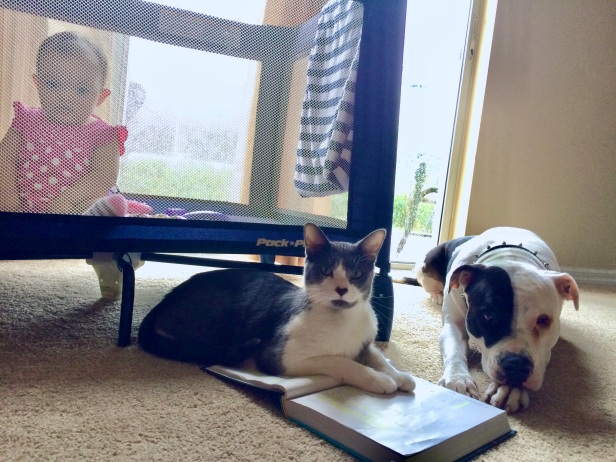
This is the only photo evidence I have of my online psychology classes.
I always had a captive audience when I tried to read my textbooks.
It took some years to rebuild my life. I wrote my heart out, gave birth to our son, went viral for a hot second, moved states, attended ministry school, got remarried, build a house, and survived a pandemic. Once the world opened back up, I was ready to once again return to my education. I wanted to begin working towards a career helping people in practical ways. People who, like me, found themselves in tragic, traumatic, or overwhelming experiences.
I talked to a friend about what I wanted to do. She pointed out that what I was describing was social work, not psychology. I always thought Social Workers were just the people who took kids out of bad homes. When I started looking, I realized that it was so much more. While there are overlaps, Psychology is primarily focused on the mind inside the person, and Social work is primarily focused on the person inside their environment. Both are working towards wholeness, they just do so from different directions. In the Fall of 2021, I enrolled in the Social Work Program at Middle Tennessee State University.


One of the things that really won me over to Social Work from Psychology was the National Association of Social Workers’ (NASW) Code of Ethics. While I had never spelled them out, these are the values that I hold dear.
Service: I want to use my experience, my education, my privilege, and my life to serve others in their time of need.
Justice: There are systems both micro and macro that purposely or inadvertently bring harm. The target of necessary change at the forefront of my mind is the state of public education. (Unpacking this would require its own post.)
Dignity and Worth of Every Individual: I believe every human has been created as a direct reflection of the image of our creator God and His will for every single individual is “on Earth as it is in Heaven.”
(Too many Christians are declaring “on Biden/Disney/California/LGBTQ folk as it is in Hell” and it needs to stop. You’re literally partnering with Satan when you do that.)
Relationships: You can only impact an individual to the depth of your relationship with them. This is why Facebook posts and bumper stickers will never actually change anyone’s mind.
Integrity: This one is self-explanatory, but I am pleased that the NASW felt it important to add it to their core values.
Competence: This might seem like an odd one to settle in on, but I want to unpack it a bit because this is the main reason I have gone back to school to pursue a degree. A few months ago, someone asked me this question: “Isn’t social work missing the spiritual piece?” Well, yes, but many faith-based organizations are missing the “Social Work” piece.
No sane person would say “All I need is Jesus in order to be a doctor” or the “Holy Spirit will show me the right way to rewire the electricity in this house.” Yet many feel like faith is the only credential required to work with people going through trauma or complicated situations in an official capacity (not talking about friends and family coming alongside people).
Good Pastors/Priests/Rabbis/Imams/Spiritual Leaders know what they are equipped to deal with and what needs to be addressed more deeply by other professions. However, when I was in the thick of it, I met with a pastor who did not recognize that I was out of her depth. I was overwhelmed with single motherhood with zero support, suffering from yet-to-be-diagnosed PTSD and suicidal thoughts, and losing my housing in two weeks’ time. I left her office feeling beat up and ashamed, as if the root of all of my pain and circumstances was the fact that I was still very angry at God for the sudden death of my husband. The pastor who “counseled” me had previously worked in the beauty industry, she had no legitimate education or training for cases like mine. Because she had no appropriate tools to help me, all she had to offer was that I should trust Jesus more. It didn’t occur to her that perhaps some assistance with housing or letting my children attend the church’s staff childcare or even a follow-up “how are things” lunch might be appropriate. Well-meaning or not, by spiritualizing, dismissing, and ignoring my environmental, physical, social, emotional, and mental health needs, she caused me more pain and further fueled my anger toward God.
(Rather than continuing to add more pastors, every large church should employ at least one Social Worker.)
I know with my resume and life experience, it would not be difficult to get a job serving people at a non-profit or church. I may be equipped with life experience, empathy, and spiritual/theological understanding, but prior to school I lacked trauma-informed best practices, a person-in-environment understanding, how to do a proper assessment, how to accurately interpret and apply research, cognitive development of humans across the lifespan… the list only intensifies when I look at what I will be learning once I get to the master’s level.
I want to have the skills and the competency to address the mind, body, as well as the spirit of those I serve.
That is why I have chosen Social Work.
POST SCRIPT
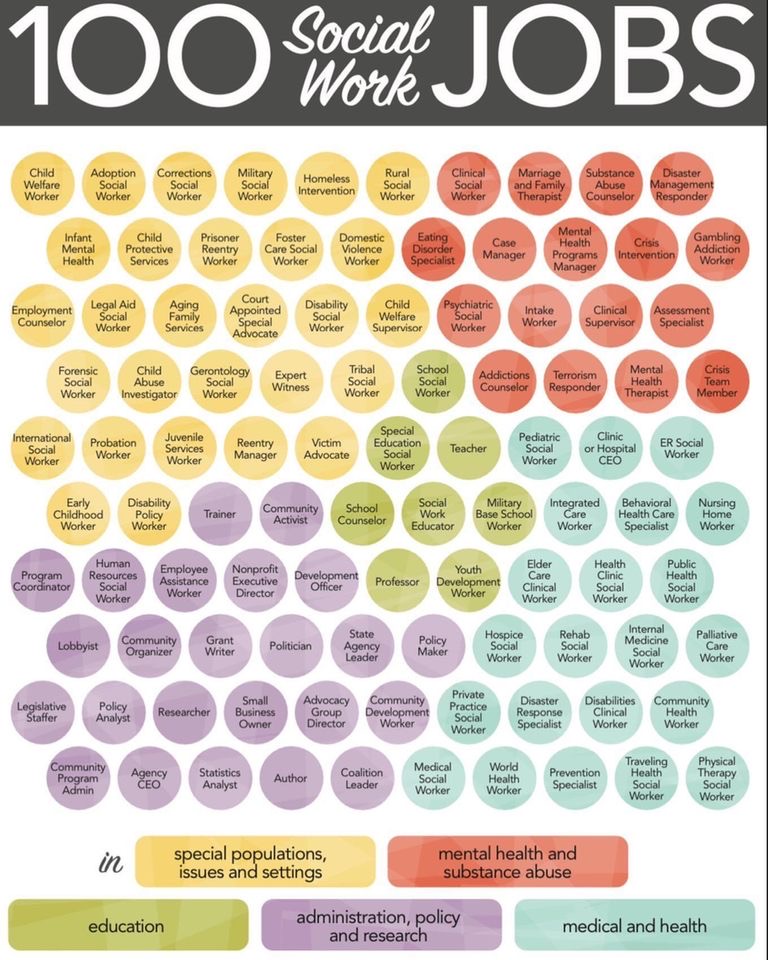
I will graduate with my BSW in December. My final semester will be composed primarily of a full-time internship with an organization that cares for minor survivors of human trafficking. I know the content will be heavy, but I am excited to serve in such an important area of social work.
The population I am mainly interested in working with in my future career are individuals who have gone through trauma, particularly teenagers. That level of work will require me to continue on to attain a Master’s degree. I qualify for an expedited Master’s Degree program at UT and will start next summer. I’ve already met with the directors of the social work program and have worked out a schedule that will have me graduate with a Trauma Certification and a School Social Work license. (So I have the option of having the same schedule as my kids.)
It has been incredibly difficult to work towards my degree while also carrying the responsibilities of wife and mother. I have often wanted to berate my 20-year-old self for not figuring out a way to get this done sooner. But my life experience has given me a greater value for the things that I am learning and I also get to demonstrate hard work and persistence to my children.
And someday soon I will be equipped to help others with the tools I needed to be helped with.
Suppose a brother or a sister is without clothes and daily food. If one of you says to them, “Go in peace; keep warm and well fed,” but does nothing about their physical needs, what good is it? In the same way, faith by itself, if it is not accompanied by action, is dead.
James 2:15-17

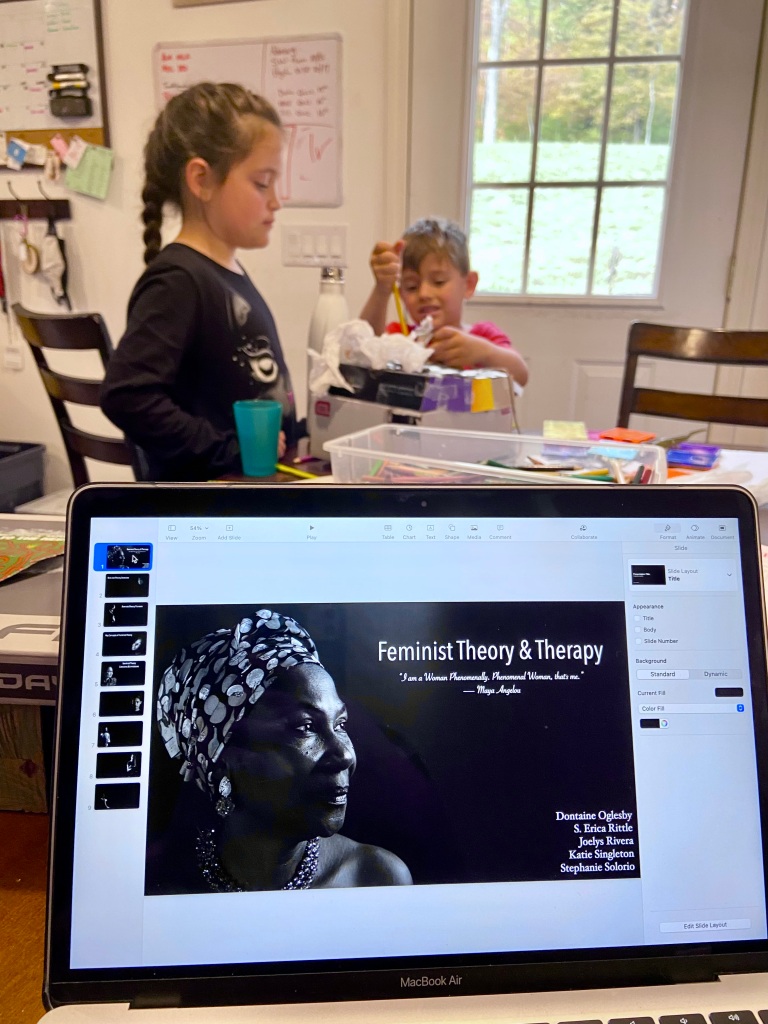
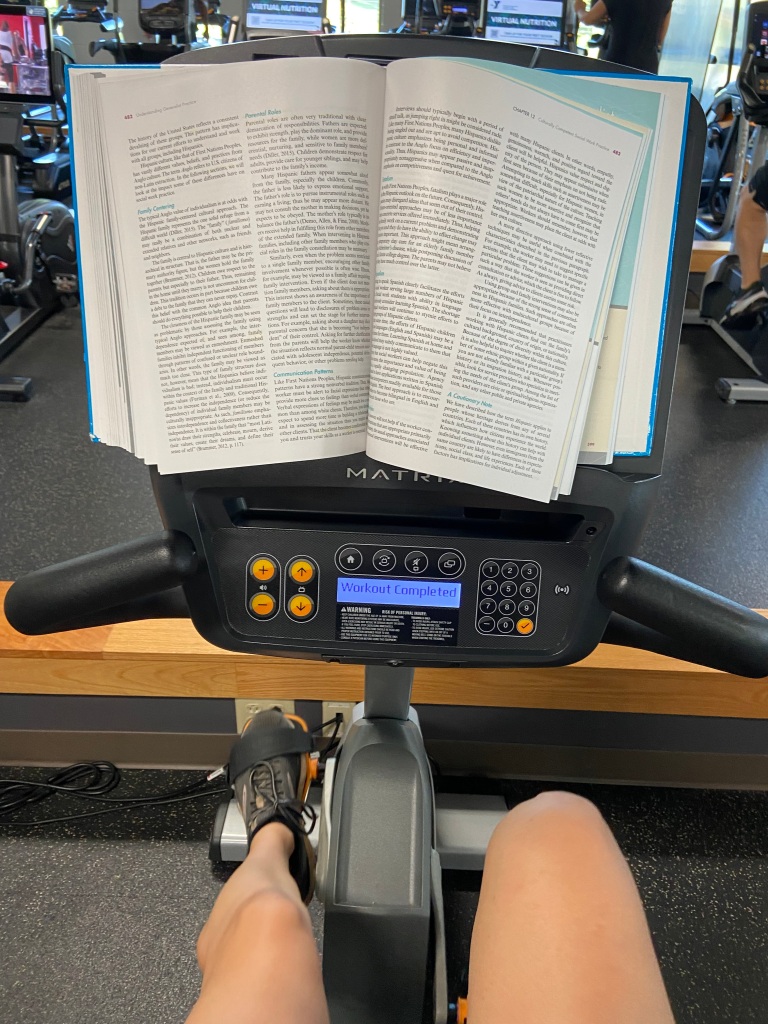


This field seems fascinating & I think you are going to do great in it!
LikeLike
I really enjoy reading your blog and appreciate your openness and honesty…..the good, bad and ugly. Thank you for sharing your story and talents.
LikeLike
Erica,
I’ve been reading your blogs from the beginning. I enjoy your style of writing and I wish you well in your final semester.
Truly have a gift and I’m positive that you will make an effective impact on all that you engage.
Godspeed.
Marta Bannigan
Sent from my iPhone
LikeLike
Amen! Our Lord is taking you forward, faithful servant already, adding to your life a trained professional servant, with the wisdom of the Holy Spirit as your guide and support.
1 Peter 4:10
In Christ,
Fellow Social Worker, retired after 43 years of service . BASW, 1977
LikeLike
May you know that you are a positive force in your children’s lives as well as everyone you reach with your writings.
LikeLike
I enjoyed reading about your life experiences and educational journey. Congratulations on finding the area of study/degree that is a perfect fit for YOU!
LikeLike
Hey, Erica! Nice to catch up. Please accept my support and good wishes. Congrats on your education and career path! I have been a hospital social worker for 30 years. Social work offers so many opportunities. Good luck as you continue your studies.
LikeLike